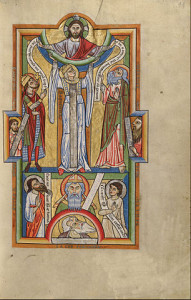
Can a man scoop fire into his lap
without his clothes being burned?
Can a man walk on hot coals
without his feet being scorched? – Proverbs 6:27-28 (NIV)
Reflection
While reading in the Proverbs, I encountered the above passage. It is in a section that deals with adultery. After re-reading that passage, I asked myself, “Why didn’t the author quote from the Law?” There is a very clear statement about adultery in the Ten Commandments and a number of other laws that deal with this sin. Proverbs here makes no reference to the Law. Rather it speaks of the natural consequences of adultery. A jealous husband, a lying lover, and fire placed in the lap will bring consequences.
I was intrigued because I live in a very secular community that has little knowledge of the scriptures, and which has little regard for bare commandments. Words like sin, law and covenant are foreign words here. Listeners respond more to indirection and storytelling along the line of the parables of Jesus than to my standing up with the Bible opened to Exodus 20 and stating “Thou shalt not.” Christian scholars live in a setting shaped in many cases by beliefs and values that are alien to ours. We can learn from the biblical approach of Proverbs 6; we can build bridges through careful choice of language and through areas of shared scholarship.
I live near the University of Wisconsin, which has a very active Hebrew Studies department. The main library has a large collection of books on biblical studies. Over the course of months I began to frequent the library in my quest to learn more about the approach represented in Proverbs 6, and I found that scholarly books sprawled across large oak desks opened up a new perspective.
By asking a question, I had discovered Biblical Wisdom Literature, and in it a new way of communicating with an academic community and beyond. This literature is associated with the wisdom books and with a number of passages that work in wisdom’s categories. These works are like a song cast into a new key. Proverbs 6 and Exodus 20 agree that adultery is wrong: Proverbs, because it is unwise and has consequences and Exodus because it is contrary to the will of God. It is the way the issue is presented that differs from the Law.
Wisdom literature is observational in nature. It is a literary genre that is shared with other ancient near eastern cultures. Yet there is a difference. Biblical wisdom literature is screened and governed by the key idea of the Fear of the Lord. In the same way, we can learn from all fields of study, while watching values and assumptions that are alien to our views. It is necessary to discern what scholarship offers while not accepting any one scholar’s conclusions as definitive.
Wisdom literature values beauty in expression and rich vocabulary, and uses identifiable literary forms. Knowing this answers a number of problems people have who are unaware of literary forms, such as “Why don’t children who are trained in the way keep from departing from it?” Proverbs are by literary form a rule of thumb rather than an absolute guarantee of results in every specific instance.
In studying wisdom literature, I have received a new language, a new way of speaking the biblical message to a people who are not open to traditional evangelical language. If the Bible uses the beauty of literature and observations about life, logic and consequences to communicate, so can we.
Questions
How can I build bridges in conversation with my colleagues, as the biblical wisdom literature does? Are there shared observations or experiences within my field that allow deeper conversation? In what ways do my study and observation overlap with that of scholars with different belief systems? In what ways do they differ? How can I have a fruitful conversation about similarities and differences?
Prayer
Thank you for the wonder of the scriptures that you care to speak to your creation. Give us the ability to hear the diversity of your word so we can speak to the diversity of people where we live in the world. Give us discernment in our studies and clarity in our speech.
David Carlson was born and raised in Port Orchard, Washington and attended the University of Washington, getting a BA in History in 1978. He took two years to do volunteer work with InterVarsity at the University of Montana in Missoula. The most interesting job he had at that time was to work on a helicopter logging operation. He graduated from Trinity Evangelical Divinity School in Deerfield, IL with a Masters of Divinity with an emphasis in Urban ministry in 1985. He has pastored in Queens, New York for 9 years and Madison, Wisconsin, about 2 miles from the campus of the University of Wisconsin, for 20 years. He has a blog on the Bible called Fresh Read at http://freshread.wordpress.com/, and one on the arts at http://twobookretreats.com/ in which he seeks to engage an unchurched audience.

Leave a Reply